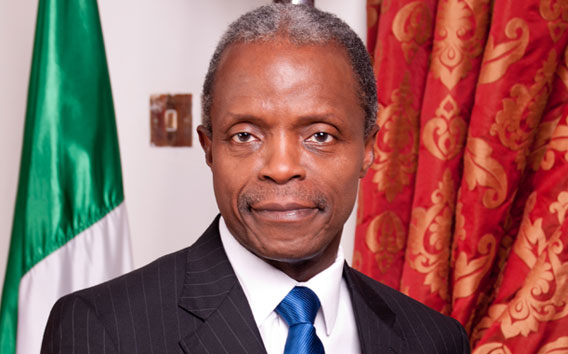
Vice President, Prof. Yemi Osinbajo, SAN, has described patronage of made in Nigeria products by Nigerians as very important and able to contribute to the revival of the cotton, textile and garment industries in the country, helping the Buhari administration to realise one of its goals.
The Vice President said this today at the Presidential Villa, Abuja during a meeting with industry stakeholders and members of the Implementation Committee on the National Cotton, Textile and Garment Policy.
“Nigerians buying Nigerian products is very important and it goes beyond the symbolism of wearing Nigerian-made dresses. It is important for our economy and well-being,” Prof. Osinbajo said.
Members of the Implementation Committee composed of both government officials and industry stakeholders had earlier highlighted a number of strategies for the revival of the cotton, textile and garments industries including the promotion of Nigeria-made dresses among others. Specifically the Committee is proposing a “Wear Naija Day,” where public officials and employees of corporate organisations would all wear locally made fabric.
The Federal Government through the Ministry of Industry, Trade and Investment had articulated a new policy to revamp the industries through a number of interventions including battling smuggling in order to attain a 15 percent reduction by next year, facilitating assess to funding for the sector, addressing the challenges of energy, lifting the ban on importation of finished products and using the duties and levies raised therefrom to support the industries, among several other strategies.
Prof. Osinbajo noted that the challenge of smuggling of foreign textile materials into the country had to be tackled, adding that, overall “it is up to all of us to see that this particular initiative works, we have talked enough.”
Speaking earlier, the Minister of State for Industry, Trade and Investment, Mrs Aisha Abubakar who was also at the meeting noted that the ministry came up with the Cotton, Textile and Garment policy, CTG in order to provide “a suit of interventions holistically across the value chain, including encouraging local patronage, controlling smuggling, production of improved seedling, cost of energy, cost of funds, training and upgrading and modernization of infrastructure.”
She added that past attempts to revive the industries failed because they had addressed only the issue of funding.




